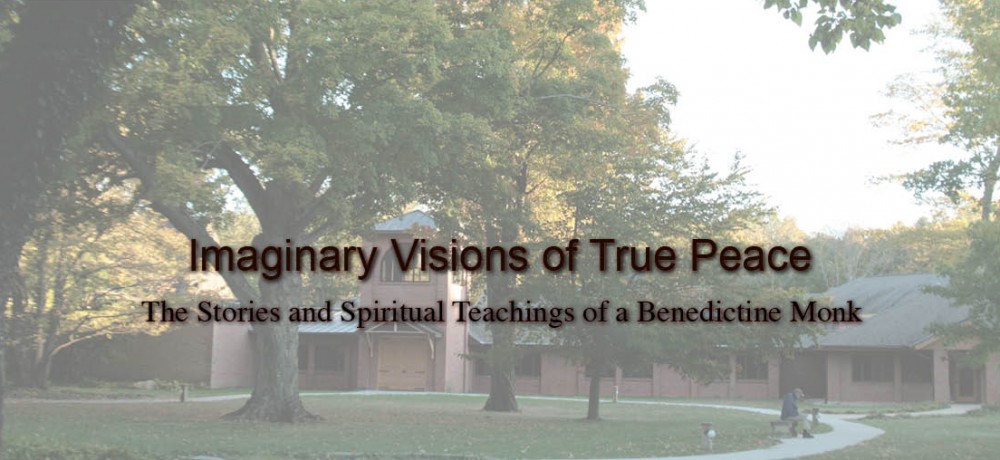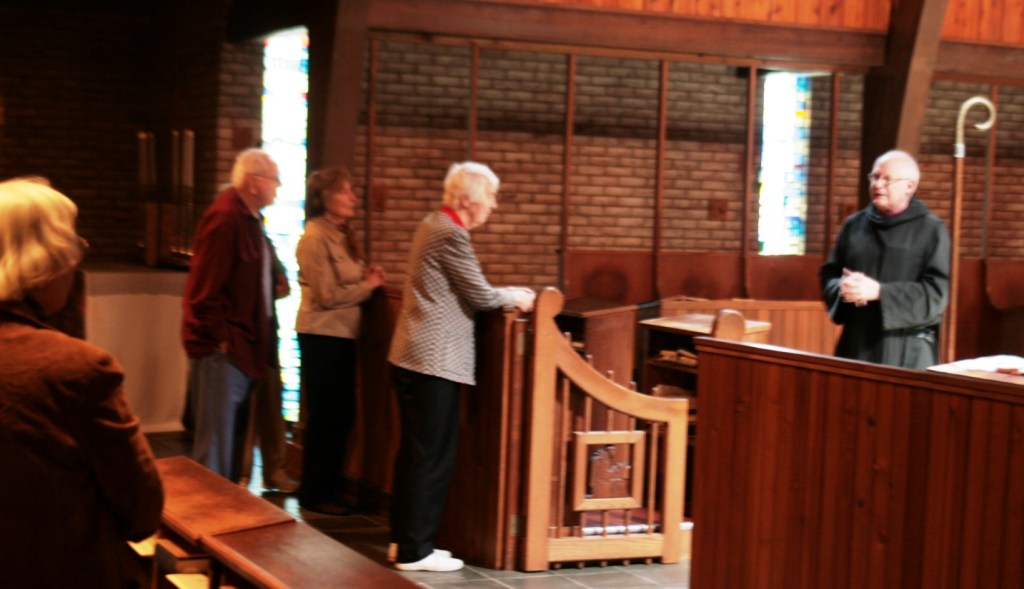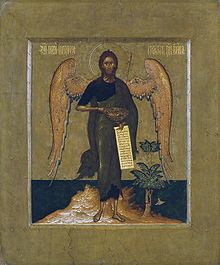
From time to time, some of us, probably most of us, are overcome with a feeling that something is about to happen. What it is that is coming is usually vague as in the celebrated song from West Side Story: “Something’s coming, I don’t know what it is/ But it is gonna be great.” Perhaps this longing turns out to be wishful thinking, or maybe something comes but it turns out not to be as great as hoped for. But then there are times when something really does come. John the Baptist proclaimed in the desert a conviction that something momentous was about to happen, even if he didn’t know exactly what it was going to be: “After me comes the one more powerful than I, the straps of whose sandals I am not worthy to stoop down and untie. I baptize you with water, but he will baptize you with the Holy Spirit.” (Mk. 1: 7–8) With Advent being the time of expectation and preparation, John the Baptist is a focus because of his own vocation of prophetic expectation. So how can we deepen our expectations today through his expectations in his time?
Past history can give us some sense of direction about what might be coming, as it did with John. If a parent tells a child that a special treat is coming, the child’s expectations are fueled by the special treats given previously, even if they don’t make the next treat predictable. Mark quotes the opening verses of Isaiah 40 to indicate the history that fueled his expectations. The verses in Isaiah proclaim the miraculous return of the Israelites to Jerusalem at the end of the Babylonian Exile. This remembered act of deliverance raised hope that God would do yet another great new thing in the present time of need under the Roman occupation which had exiled the Jews in their own country.
As for the present time, John did not know specifically what was coming but, from our vantage point, we know that the infant Jesus had been born and we also know what happened when this child grew up. Does that mean that for us there is no suspense? No. When we read a story for a second or third time, we may know how it ends but we find ourselves understanding much more about what the ending means by going through the story again. Surely none of us have exhausted the meanings of Jesus’ birth and death and resurrection! To give a telling example: John himself seems to have been off the mark when he said someone “stronger” than he was going to come as Jesus was born a helpless infant and Mark stresses Jesus’ weakness on the cross. Or is this weakness an unimaginable strength beyond John’s grasp? The Greek word ischyros used here means physical strength, but it can also refer to spiritual and moral strength. What does all this mean to us? We have much insight and inspiration to look forward to!
Like John, we look to the future with trepidation and hope. The author of Second Peter captures our apprehensions today by predicting that “the heavens will disappear with a roar; the elements will be destroyed by fire, and the earth and everything done in it will be laid bare.” (2 Pet. 3: 10) That does not sound reassuring and surely is not what God wants for us; it is obviously a human possibility. But in the midst of such trials, we have a “new heaven and a new earth” to look forward to. Such a new heaven and new earth is beyond imagining; surely they are not like the mediocre visions of heaven that one literary critic referred to as a move from second class to first class accommodations attested to in bad poems..
Is our hope and expectation hopelessly vague? The prophecy in Isaiah can help us now as much as it helped the Israelites at the time of the return from exile. The road may be rough, but God will make the rugged places a plain. (Is 40: 4) Moreover, God will lead us as a shepherd leads the sheep and, again beyond imagining, “the glory of the Lord will be revealed.”
What do we do in the meantime? One thing we can and must do is wait, poised and ready for something to come. Even the impatient adolescent Tony sang in his song: “Yes it will/ Maybe just by holding still, it’ll be there.” If Tony can hold still until he meets Maria, we can hold still until we meet our God who is surely coming to meet us. The other thing we can and must do is repent. We need to straighten out the rough valleys and hills within ourselves that obstruct a highway of God, and we need to turn away from the ways we inflame the earth and turn to ways we can make the earth new. John preached and enacted a baptism of repentance; Jesus’ first admonition after being baptized himself was: Repent. Repent and wait: that is what Advent is all about. Meanwhile, something is coming from God even if we don’t know what it is.



 John the Baptist is so closely associated with the beginning of Jesus’ ministry that it’s easy to see them as two of a kind. Both preached repentance. Both died the death of a martyr.
John the Baptist is so closely associated with the beginning of Jesus’ ministry that it’s easy to see them as two of a kind. Both preached repentance. Both died the death of a martyr. Although John burned with a conviction that God was going to do something new, he had only the models of past prophets to guide him in opening a way to the great new thing. He lived in the desert, wore a camel hair coat and ate wild locusts and honey in imitation of Elijah. Like the prophets of the past, he warned the brood of vipers of the wrath to come if people did not shape up and turn back to God. (Lk. 3: 7) Again like the prophets, he told soldiers not to oppress vulnerable people. Yet again like the prophets, he rebuked his ruler, Herod. And like so many of the prophets, he was put to death.
Although John burned with a conviction that God was going to do something new, he had only the models of past prophets to guide him in opening a way to the great new thing. He lived in the desert, wore a camel hair coat and ate wild locusts and honey in imitation of Elijah. Like the prophets of the past, he warned the brood of vipers of the wrath to come if people did not shape up and turn back to God. (Lk. 3: 7) Again like the prophets, he told soldiers not to oppress vulnerable people. Yet again like the prophets, he rebuked his ruler, Herod. And like so many of the prophets, he was put to death.


